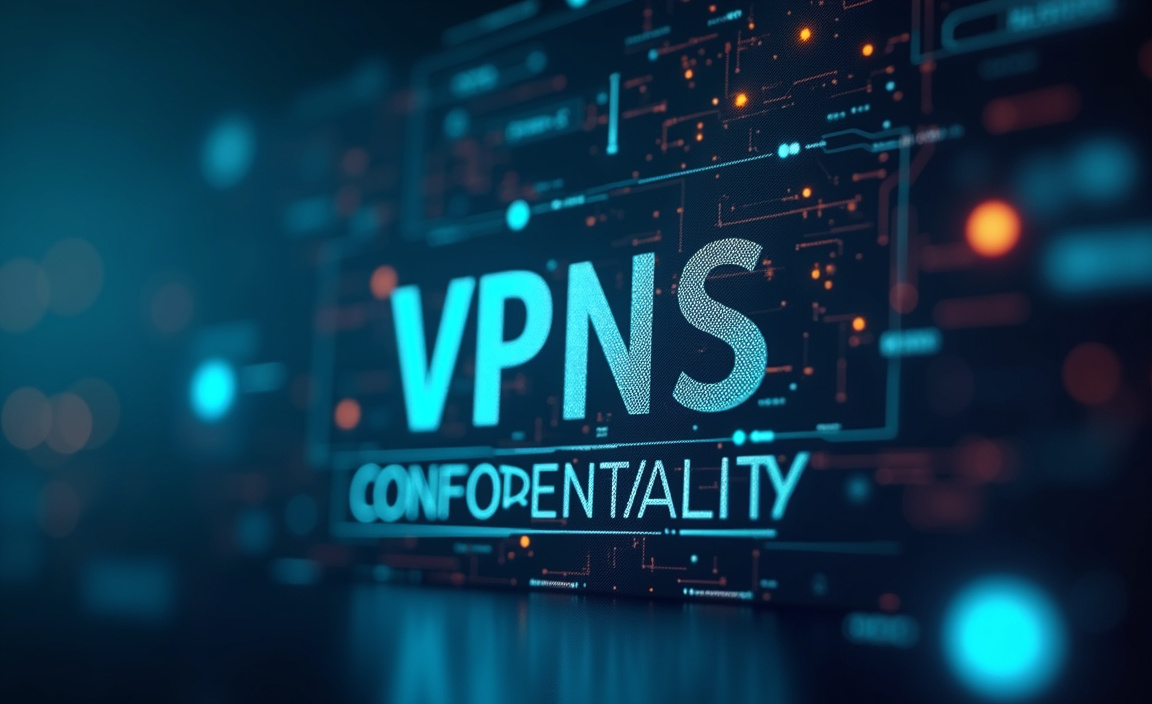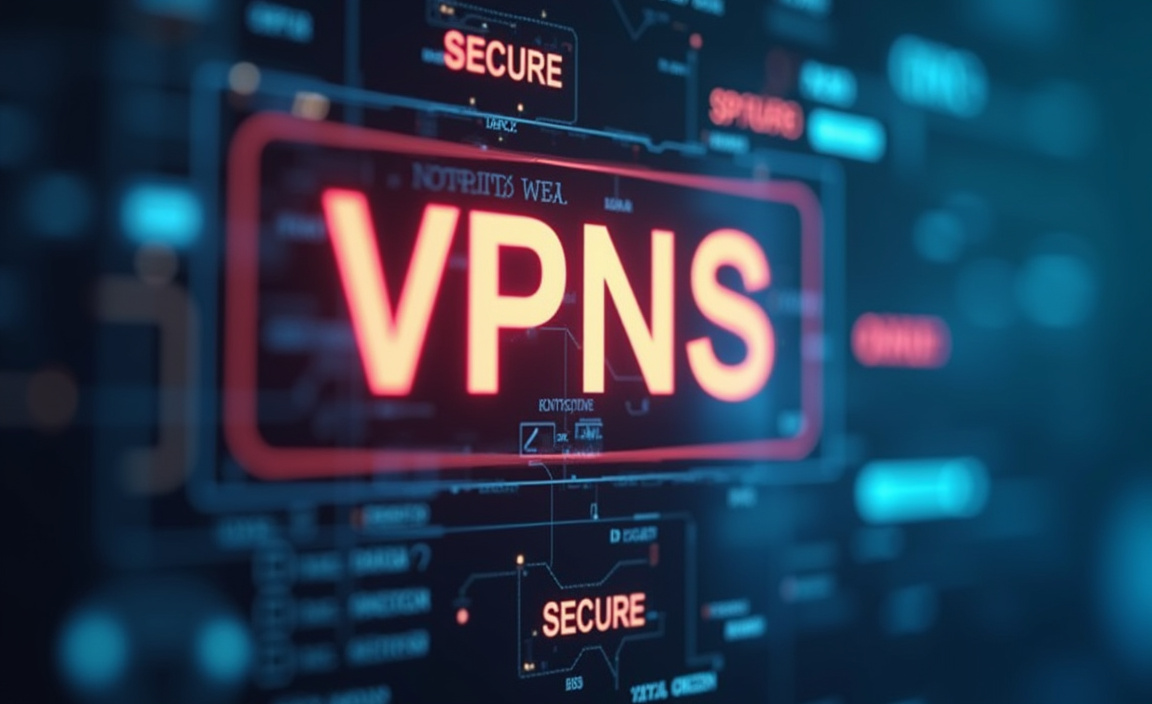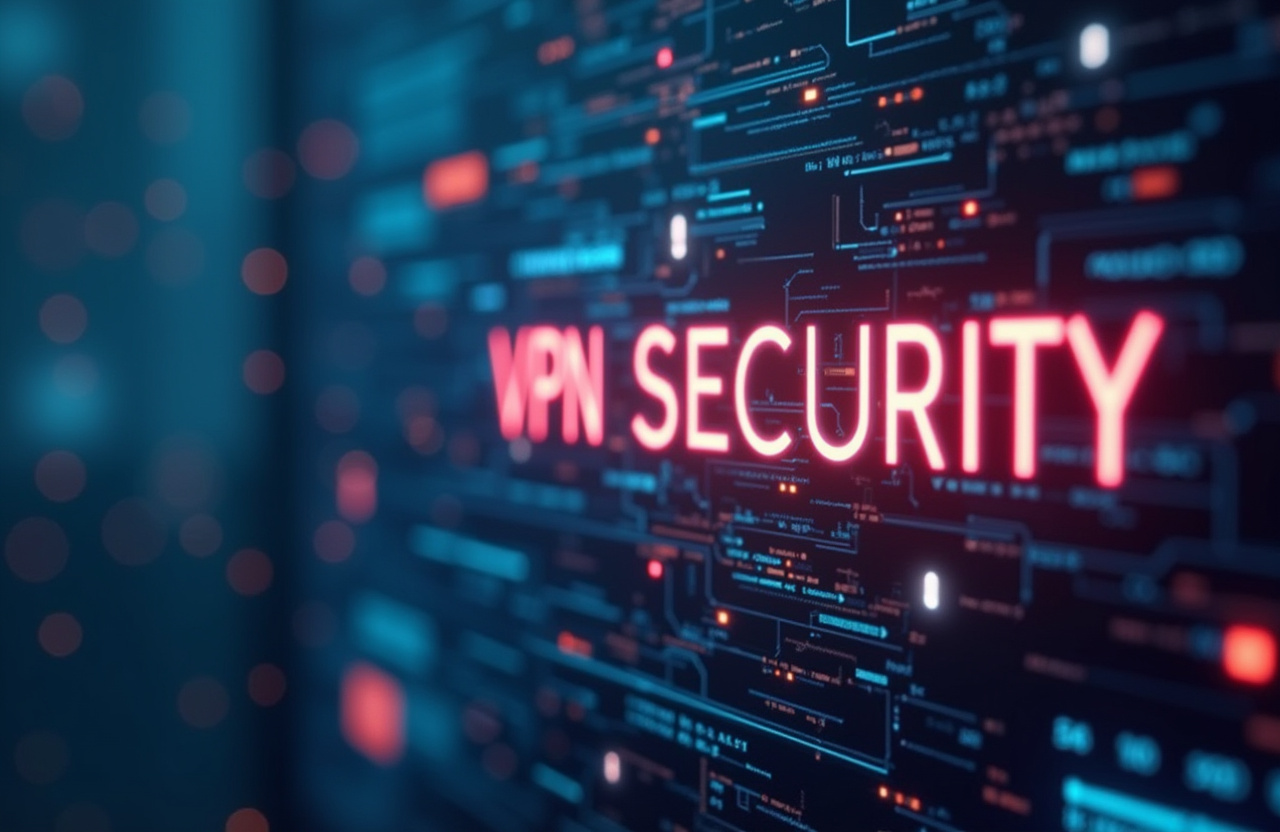VPNs for Autonomous Vehicle Research: Protecting Development Data

Table of Contents
Securing the Future of Autonomous Vehicles: The Critical Role of VPNs in Protecting Research Data
The autonomous vehicle (AV) industry stands at the precipice of a transportation revolution, promising safer, more efficient, and sustainable mobility solutions. However, fueling this technological leap is an immense and ever-growing volume of data: sensor readings capturing the surrounding environment, intricate mapping data for navigation, complex algorithmic parameters dictating vehicle behavior, and extensive simulation results validating performance. This data, the lifeblood of AV development, is also inherently vulnerable.
As AV research increasingly transcends geographical boundaries, involving global collaborations and distributed testing environments, the risk of data breaches, intellectual property theft, and malicious manipulation becomes a paramount concern. This article delves into the vital role Virtual Private Networks (VPNs) play in fortifying development data security within the AV research ecosystem, ensuring robust communication protection, and fostering an environment conducive to unfettered innovation. The security of AV development data is not merely a technical consideration; it is the bedrock upon which the safety, reliability, and societal acceptance of autonomous vehicles are built.
Compromised data can lead to flawed algorithms, unpredictable vehicle behavior, and ultimately, jeopardized public safety. Furthermore, the vast investments poured into AV research make this data a highly prized target for competitors, nation-states, and malicious actors seeking to gain an unfair advantage or disrupt the industry. The integration of a tailored autonomous vehicle VPN solution provides a critical layer of defense against these threats, shielding sensitive research data from external intrusion and guaranteeing the confidentiality and integrity of communications between geographically dispersed research teams, remote testing sites, and external partner organizations.
This proactive approach transcends simple regulatory compliance; it represents a strategic investment in the enduring security and future success of the entire autonomous vehicle sector. By mitigating the risk of costly data breaches and intellectual property losses, researchers can confidently focus on pushing technological boundaries, developing groundbreaking algorithms, and refining safety-critical systems without the constant shadow of cyber threats looming overhead. The ability of a VPN to create a secure and encrypted tunnel for data transmission is paramount.
An effective autonomous vehicle VPN solution encrypts data at the source – whether it's a sensor onboard a test vehicle, a simulation server in a data center, or a researcher's workstation – tunnels it through secure servers strategically located around the globe, and decrypts it only at the intended destination. This end-to-end encryption process creates a virtually impenetrable barrier to eavesdropping, ensuring that sensitive information remains shielded from unauthorized access throughout its journey. Beyond merely encrypting data, advanced VPN solutions offer an array of sophisticated security features designed to further bolster the defenses of AV research operations.
These features may include multi-factor authentication (MFA), requiring users to verify their identity using multiple methods, such as passwords and one-time codes generated by a mobile app; intrusion detection and prevention systems (IDPS), actively monitoring network traffic for suspicious activity and automatically blocking potential threats; and comprehensive activity logging and auditing capabilities, providing a detailed record of all network access and data transfers for forensic analysis and compliance purposes. The advantages of implementing a comprehensive VPN strategy extend far beyond simply satisfying baseline security requirements. By creating a secure and reliable communication infrastructure, VPNs facilitate seamless and secure collaboration between researchers, engineers, and stakeholders located across different time zones and geographical locations.
This enhanced collaboration can accelerate the pace of innovation, improve the quality of research, and reduce development costs.
The challenge of achieving robust development data security in AV research is a complex and multifaceted undertaking, demanding a holistic approach that addresses potential vulnerabilities at every stage of the data lifecycle, from initial data collection to secure storage, rigorous processing, and reliable transmission. The sheer volume and inherent complexity of the data generated by autonomous vehicles pose a significant hurdle in itself. The gargantuan datasets used to train sophisticated AV algorithms routinely comprise terabytes, or even petabytes, of information.
This includes high-resolution camera images capturing visual data, precise LiDAR scans mapping the surrounding environment in three dimensions, sensitive radar data detecting objects and their movement, and a constant stream of sensor readings providing real-time information about the vehicle's operating status and surroundings. Managing this massive volume of highly sensitive data securely, while simultaneously maintaining accessibility for research and development purposes, necessitates a robust and scalable infrastructure, coupled with the implementation of rigorous security protocols. Furthermore, ensuring the integrity of the data is of paramount importance.
Even seemingly minor or subtle alterations to the training data used to develop AV algorithms can have significant and potentially catastrophic consequences for the performance, reliability, and overall safety of autonomous vehicles. For example, if sensor data is manipulated to misrepresent the presence of an obstacle or alter the interpretation of a traffic sign, the vehicle's AI system may make incorrect decisions, leading to collisions or other hazardous situations. Therefore, ensuring that the data remains accurate, complete, and unaltered throughout the entire development process is absolutely critical for building public trust in the technology and preventing potentially devastating accidents.
The implementation of strong encryption algorithms forms the cornerstone of any robust autonomous vehicle VPN security strategy. These sophisticated algorithms transform data into an unreadable and incomprehensible format, rendering it virtually impossible for unauthorized individuals to decipher the contained information. The Advanced Encryption Standard (AES) with a key length of 256 bits is widely recognized and accepted as a highly secure encryption method, offering robust protection against brute-force attacks and a wide range of other forms of cyber intrusion.
Data integrity checks, such as cryptographic hashing, provide an invaluable mechanism for detecting any unauthorized modifications to data during either transmission or storage. These integrity checks involve generating a unique hash value – essentially a digital fingerprint – for each individual data file. This hash value can then be used to verify that the data has not been tampered with or corrupted in any way.
If the hash value changes, it indicates that the data has been altered, alerting researchers to a potential security breach or data integrity issue. Secure key management practices are absolutely essential for maintaining the confidentiality of encrypted data. Encryption keys should be stored securely and accessed only by authorized personnel who have a legitimate need to access the protected data.
Key exchange protocols should be robust and resistant to interception or manipulation, ensuring that only authorized parties can participate in secure communication sessions. Additionally, regular and comprehensive security audits and penetration testing should be conducted to proactively identify and address any potential vulnerabilities that may exist within the VPN infrastructure and associated security protocols. These assessments can help an organization proactively mitigate risks and ensure that their existing security measures remain effective and capable of defending against emerging cyber threats.
Communication protection is an indispensable pillar of a VPN's role in autonomous vehicle research, playing a critical part in ensuring that all interactions among the diverse stakeholders involved in the complex and iterative process of AV development remain strictly confidential, secure from eavesdropping, and tamper-proof against malicious manipulation. This encompasses not only the direct transmission of data files, but also a broader range of communication channels, including verbal conversations held during collaborative meetings, the exchange of sensitive information via email correspondence, and the collaborative management of projects through online platforms. A breach in any of these communication channels, regardless of its apparent scale, could potentially expose highly sensitive information, irrevocably compromise vital research findings, and ultimately undermine the integrity of the entire project and the reputation of the organization.
The consistent and rigorous use of secure communication protocols, such as Transport Layer Security (TLS) and its predecessor, Secure Sockets Layer (SSL), is absolutely critical for protecting data while it is actively in transit. These protocols work by encrypting data and simultaneously verifying the identities of the parties who are communicating with each other, effectively preventing both passive eavesdropping, where malicious actors simply monitor network traffic, and more active man-in-the-middle attacks, where attackers attempt to intercept and alter communications between two parties. It is of paramount importance to ensure that all communication channels that are regularly used by the AV research teams are consistently configured to utilize the strongest and most up-to-date security protocols that are available, and that all necessary security certificates are properly managed, renewed, and validated.
Secure email communication is another vital area of focus, as email continues to be a particularly attractive and effective vector for launching phishing attacks, distributing malicious malware, and perpetrating other forms of cybercrime. The implementation of robust email encryption technologies, such as Pretty Good Privacy (PGP) and Secure/Multipurpose Internet Mail Extensions (S/MIME), can be used to protect the confidentiality of email messages and any attached files that are sent along with them. These technologies rely on the principles of public-key cryptography to encrypt and decrypt emails, ensuring that only the intended recipient, who possesses the corresponding private key, can successfully read the messages.
Furthermore, collaboration platforms, which include video conferencing tools, shared document repositories, and project management software systems, should also be carefully secured and regularly monitored for suspicious activity. These platforms often involve the sharing of extremely sensitive information, including design specifications, testing data, and strategic planning documents, and therefore should be protected with strong authentication mechanisms, access controls, and encryption protocols. Two-factor authentication (2FA), which requires users to verify their identity using two independent factors, such as a password and a one-time code sent to their mobile device, can provide an additional layer of security against unauthorized access.
Regular security audits and vulnerability assessments can help to identify and address any weaknesses in the security configurations of these platforms.
Innovation thrives best in an environment of trust and security. Autonomous vehicle research, inherently reliant on cutting-edge technology and groundbreaking discoveries, demands an atmosphere where researchers can freely explore novel ideas, share critical findings, and collaborate without the persistent fear of intellectual property theft or data breaches. A robust and properly implemented autonomous vehicle VPN serves as a powerful enabler of innovation, fostering a secure and collaborative ecosystem that fuels progress and accelerates the development of safe and reliable AV technologies.
When researchers are confident that their work is protected, they are more likely to engage in open communication, share their insights with colleagues, and experiment with bold new approaches. This collaborative spirit is essential for overcoming the complex technical challenges that lie ahead in the pursuit of fully autonomous driving capabilities. A secure VPN not only protects sensitive data, but also provides researchers with a stable and reliable platform for accessing and sharing the vast amounts of information required for AV development.
This includes access to remote data centers, cloud-based simulation environments, and collaborative development platforms. By ensuring seamless and secure connectivity, a VPN streamlines the research process and allows researchers to focus on their core competencies, rather than being hampered by technical difficulties or security concerns. Furthermore, a strong VPN can facilitate partnerships and collaborations with external organizations, such as universities, research institutions, and technology vendors.
These collaborations often involve the sharing of sensitive data and intellectual property, making security a paramount concern. A secure VPN provides a trusted environment for these collaborations to flourish, allowing organizations to share information with confidence, knowing that their valuable assets are protected. The ability to attract and retain top talent is also crucial for driving innovation in the AV industry.
Talented researchers and engineers are highly sought after, and they are more likely to choose to work for organizations that prioritize security and provide a safe and supportive work environment. A commitment to data security not only protects valuable intellectual property, but also demonstrates a commitment to the well-being and professional development of employees. In addition to protecting data and fostering collaboration, a secure VPN can also help organizations comply with increasingly stringent data privacy regulations.
As data privacy laws become more complex and widespread, AV companies must ensure that they are handling data in a responsible and compliant manner. A VPN can help organizations meet these requirements by providing a secure and auditable platform for data processing and storage. Choosing the right VPN solution for autonomous vehicle research requires careful consideration of various factors, including the specific security needs of the organization, the size and complexity of the research environment, and the level of technical expertise available.
A well-designed VPN solution should be flexible and scalable, capable of adapting to the changing needs of the research team and accommodating new technologies and security threats.
The Future of VPNs and Subscription Services: Enhanced Security and User Experience
The long-term viability and success of the autonomous vehicle industry hinges on a proactive and comprehensive approach to security, with VPNs forming a crucial component of that strategy. As AV technology continues to evolve and become increasingly integrated into our daily lives, the potential consequences of security breaches will only escalate, underscoring the critical importance of investing in robust security measures today. This proactive stance should encompass not only the technical aspects of VPN implementation, but also the development of a strong security culture within AV research organizations, where all employees are aware of the potential threats and are trained to follow security best practices.
Continuous monitoring and assessment of security protocols are also essential, as the threat landscape is constantly evolving, and new vulnerabilities are discovered regularly. Organizations must remain vigilant and adapt their security measures to stay ahead of emerging threats. Incident response planning is another crucial element of a comprehensive security strategy.
Even with the best security measures in place, breaches can still occur. Organizations must have a well-defined plan for responding to security incidents, including procedures for containing the breach, investigating the cause, and recovering lost data. Collaboration and information sharing within the AV industry are also essential for improving overall security.
By sharing threat intelligence and best practices, organizations can collectively strengthen their defenses against cyberattacks. Industry consortia and government agencies can play a key role in facilitating this collaboration and promoting the adoption of security standards. Furthermore, ongoing research and development efforts are needed to improve VPN technology and address the specific security challenges of autonomous vehicles.
This includes the development of new encryption algorithms, intrusion detection systems, and security protocols that are tailored to the unique requirements of AV systems. Governments also have a crucial role to play in promoting security in the AV industry. This includes establishing clear regulatory frameworks for data privacy and security, providing funding for security research, and working with industry to develop security standards.
Public awareness and education are also important. Consumers need to be informed about the security risks associated with autonomous vehicles and what steps they can take to protect themselves. By working together, industry, government, and the public can create a more secure and trustworthy environment for the development and deployment of autonomous vehicles.
In conclusion, securing development data and communication with VPNs is not just a technical necessity for autonomous vehicle research; it is a strategic imperative that enables innovation, fosters collaboration, and builds public trust. By adopting a comprehensive security approach that includes robust VPN implementation, a strong security culture, continuous monitoring, incident response planning, and collaboration within the industry, we can pave the way for a safe, secure, and innovative future for autonomous transportation. The journey towards fully autonomous vehicles is a marathon, not a sprint, and security must be a top priority every step of the way.
Stay Updated
Get the latest VPN news, tips, and exclusive deals to your inbox.




